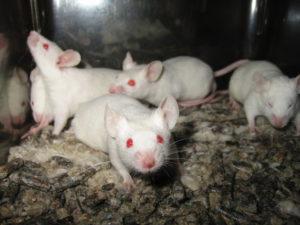Immunologists use mouse models in a variety of experiments to determine immunological pathways and functions. However, as this review shows, keeping mice in very clean enviroments could alter their immune responses and therefore provide misleading results. Considering the environment lab mice are kept in and how it will effect their immune systems could improve our current mouse models.
It has been known for a long time that exposure to different pathogens throughout a human’s life shapes and potentially strengethens one’s immunity. Hypotheses have been generated which try to explain this. One such hypothesis is the Hygiene Hypothesis. It states that conditions such as allergy are on the rise – especially in the Western world – as society becomes more clean. People are less exposed to microbes and therefore their immune system malfunctions.
In many facilities that undertake mouse studies, the mice are kept in very clean, controlled enviroments. Since these mice are used to model what would happen in humans, keeping them in this unnatural environment may alter their immune reponses and therefore provide misleading results. This led researchers, Lili Tao and Tiffany Reese, from University of Texas Southwestern Medical Centre to review literature to determine what effect an extremely clean environment would have on research mice.
The researchers found studies that show that infection with pathogens is vital for activation and functionality in terms of the immune system of mice. For example, cytomegalovirus is a common virus in mice outside of research. One study found that lab mice who are not infected with cytomegalovirus because they are kept in clean environments had impaired immune responses to both bacterial and viral infections.
Mouse models are invaluable in studying vaccines. However, most mice that are bred in labs have less memory T-cells than normal mice. Experiments performed by one of the authors show that mice exposed to viruses such as influenza have altered responses to vaccines. In this case, those mice elicited less antibodies after yellow-fever vaccination.
This review highlights that mice from different backgrounds have very different immune responses to pathogens. Establishing a mouse model that has enough pathogen exposure for an experiment is crucial in generating useful and relevant immunological data that may mimic the human immune response more closely.
Journal Article: Tao and Reese, 2017. Making Mouse Models That Reflect Human Immune Responses. Trends in Immunology
Article by Thandeka Moyo












